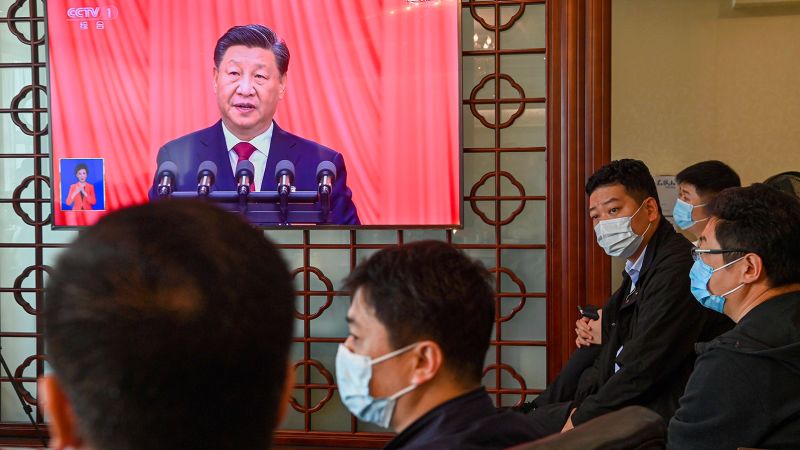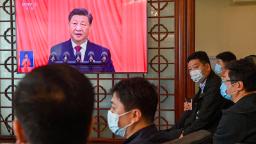

Hong Kong
CNN Business
—
China released stronger-than-expected GDP and other economic data on Monday, just a day after Xi Jinping clinched a historic third term in power following the conclusion of a major political gathering.
But Hong Kong’s Hang Seng
(HSI) Index, a key gauge of overseas investor sentiment on China, tumbled at Monday’s open and headed for its biggest losses in more than seven months.
China’s economy grew 3.9% in the third quarter from a year ago, beating market expectations, the National Bureau of Statistics announced on Monday. Previously, a Reuters poll of economists had expected growth of 3.4%.
The data were initially scheduled to come out on October 18, but had been delayed without any explanation.
The ruling Communist Party held its twice-in-a-decade party congress from October 16 to October 22, during which Xi not only managed to secure a precedent-breaking third term as the party chief, but also filled the new leadership team with his staunch loyalists — a sign that Xi now has an iron grip on power.
Meanwhile, a number of key economic officials who are famous for being supportive of market reforms and opening up the economy were missing from the new leadership, stirring concerns about the outlook of China’s already fragile economy. The missing names include Premier Li Keqiang, Vice Premier Liu He, and central bank governor Yi Gang.
The 3.9% growth rate was significantly better than the 0.4% increase recorded in the second quarter, when China’s economy was battered by widespread Covid lockdowns. But it’s still below the annual official target of “around 5.5%” set by the government earlier this year.
On Monday, Hong Kong’s benchmark Hang Seng Index opened down and sank 4.6% in early trading, poised for its biggest daily decline since March.
The Hang Seng Tech Index, which tracks 30 largest technology firms listed in Hong Kong, plunged nearly 6%. Alibaba
(BABA) and Tencent
(TCEHY) plummeted 9.7% and 7.4% respectively.
Meanwhile, the Shanghai Composite Index, which trades on the tightly controlled domestic market in China, dropped 0.5%. The tech-heavy Shenzhen Component Index lost 1.2%.
Elsewhere in Asia, the Nikkei
(N225) rose 1.2%, and the Kospi advanced 1.6%.